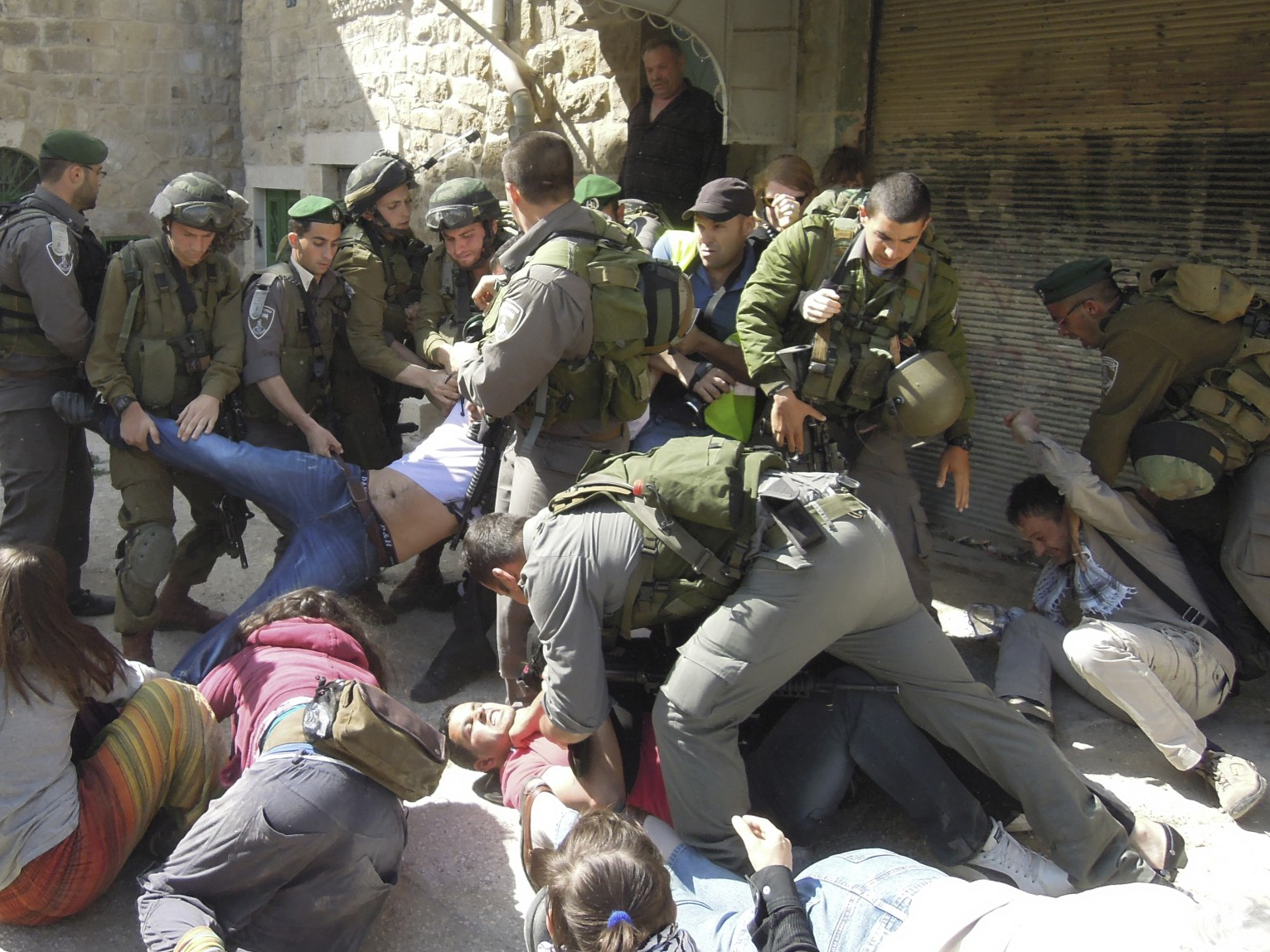Tag: Arrests
-
Israeli Border Police violently attack Palestinians and Intl’s in Hebron
by Abir Kopty 11 April 2012 | Popular Struggle Coordination Committee Twelve were detained and Three were injured after Israeli forces attacked participants of the Bili’n Conference on the Popular Struggle who toured Hebron. Israeli Border Police officers attacked a group of Palestinians and Internationals who participated in the 7th International Bil’in Conference on the…
-
Passover violence in Occupied Al Khalil
by Paige 10 April 2012 | International Solidarity Movement, West Bank The Israeli army enforced a system of extensive closures, detentions, and violence against Palestinians and internationals activists during the Jewish holiday of Passover in Al Khalil (Hebron). The army closed off the busy Beersheba road to allow Jewish settlers to visit the tomb of…
-
Kufr Qaddoum: “You took our fathers so today we lead the demonstration”
by Jennifer 8 April 2012 | International Solidarity Movement, West Bank On Friday the 6th of April, in celebration of the Day of the Child, the weekly demonstration was held in the village Kufr Qaddoum outside of Nablus. This demonstration was particularly charged as the previous night the IOF (Israeli Occupying Forces) had violently raided…

